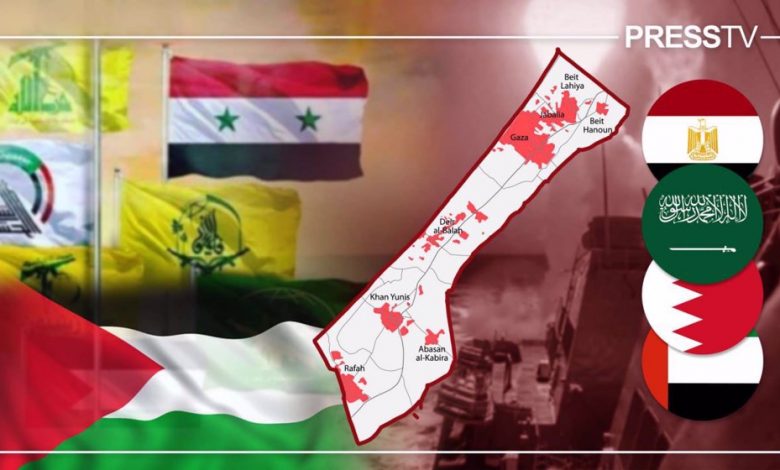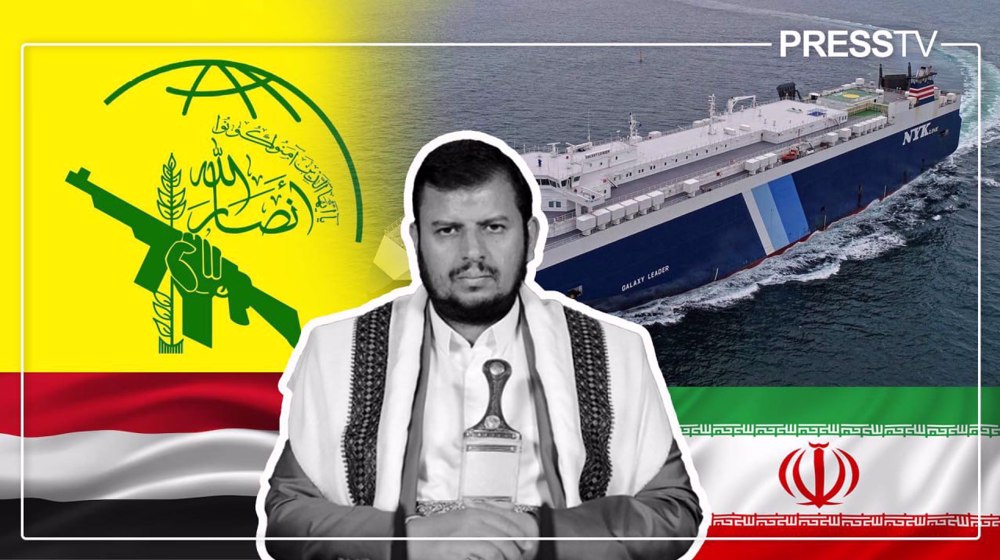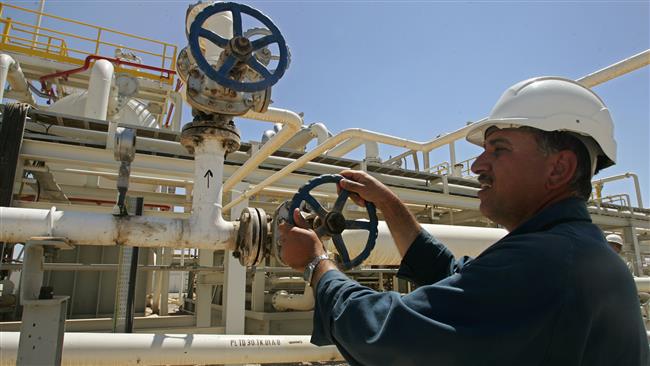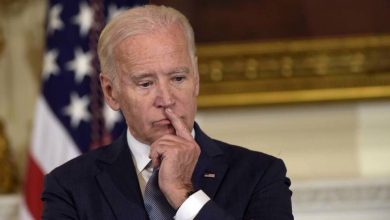Some Arab countries covertly helping Israeli regime bypass Red Sea blockade

By Xavier Villar
On November 19, two related events occurred. On one hand, a helicopter from the Yemeni naval force boarded the cargo ship by the name Galaxy Leader while sailing in the Red Sea south of Jeddah.
Several Yemeni soldiers raised the flags of Yemen and Palestine on the ship and directed it towards the Yemeni port of Hodeida. The military operation, they said, was conducted because the shipping company that had chartered the vessel was Israeli.
Israel denied the news, stating that the ship was “British-owned and operated by Japanese.”
However, the truth is that the shipping company was owned by the Israeli billionaire, Rami Ungar, who enjoys very close connections with the political elite in Tel Aviv.
The other event that took place on the same day, November 19, occurred hundreds of kilometers away from the Red Sea, in Tehran, where Leader of the Islamic Revolution Ayatollah Seyyed Ali Khamenei, at a public event, urged Muslim countries to sever all economic ties with Israel to help save Palestinian lives.
Since November 19, some shipping companies have started to change routes, avoiding the Red Sea, even if it means extending the journey by about ten days with additional economic costs.
The total cargo volume passing through the Suez Canal has decreased by 45 percent, while for container ships, the figure is believed to be much higher.
The best example of the impact of the Yemeni blockade and Ayatollah Khamenei’s appeal is reflected in the current situation of the port of Eilat, the only port that the Zionist colony has in the Red Sea.
This port has been severely affected by the blockade imposed by the Axis of Resistance. The import of vehicles, which constitutes the main cargo at the port, has practically come to a complete halt.
The situation in Eilat serves to demonstrate how a joint strategy, both political and military, can be effective in paralyzing one of Israel’s most important ports.
Politically, the boycott call by the Leader of the Islamic Revolution in his speech on November 19 is producing results. In Malaysia, the government ordered its port operators to deny docking ships destined for the occupied Palestinian territories or those owned by the Zaim shipping company, which has close ties to Zionist intelligence services.
However,
The relationship between Ansarullah-ruled Yemen and the Islamic Republic of Iran is centered on their opposition to US hegemony and the Israeli occupation of Palestine.
this economic blockade against the Zionist entity is not being implemented in letter and spirit by some Arab countries, notably Jordan, the United Arab Emirates, and Saudi Arabia.
According to reports published by Israeli TV network Channel 13, these countries are actively helping Israel break the blockade imposed by the Yemenis in the Red Sea.
The report mentioned how hundreds of trucks were traveling from Saudi Arabia and Jordan, eventually reaching the port of Haifa in the occupied territories via Dubai in the United Arab Emirates.
The special relationship between these three countries and Israel is no secret. They have been dealing both publicly and behind the scenes with the Israeli regime while pretending to care about Palestinians.
In 1994, the so-called “peace agreement” between Jordan and the Zionist entity was signed. However, it was rejected by an overwhelming majority of the Jordanian population.
For example, according to data from a survey conducted by the Washington Institute for Studies, a pro-Zionist American think tank, in 2023, more than 84 percent of the Arab country’s population rejected any kind of relationship with the Israeli regime.
On the other hand, the United Arab Emirates signed the so-called “normalization” with Israel in 2020 as part of the so-called “Abraham Accords” promoted by the US administration of Donald Trump.
Both countries have established strategic cooperation in various fields, including the military. In January 2022, the Israeli armament company Elbit Systems announced that it had signed a contract worth $53 million to supply defense systems necessary for the UAE Air Force.
Finally, relations between Saudi Arabia and Israel are at a standstill, which, from a strategic point of view, represents a victory for the Palestinian cause, especially in the context of the genocide in Gaza.
Over a year ago, Ayatollah Khamenei, in one of his speeches, warned that normalization between Saudi Arabia and Israel could cause internal problems for the Saudi regime due to “betrayal of the Palestinian cause” and internal opposition from the Saudi people to the decision made by their leaders.
However, the Saudi leadership has continued back-channel diplomacy with Israel and there has even been speculation about Riyadh normalizing with Tel Aviv once the tempers cool.
Saudi officials also have not ruled out the possibility of normalization with the Tel Aviv regime, even though the Saudi public is vehemently against the idea.
A recent survey published by the Al-Maqreez Al-Arabi Political Analysis Center, based in Qatar, showed how 89 percent of respondents in Saudi Arabia expressed concern about the situation in Palestine once normalization with Israel was formalized.
The Joe Biden administration, meanwhile, has continued with the “normalization” project initiated under Trump, focusing on diplomatic efforts to forge agreements between the Persian Gulf states and Israel, rather than addressing the Palestinian issue and ending the genocide in Gaza.
All this highlights the existence of a political divide in the region: on the one hand, the political discourse, represented by Iran’s boycott calls against the Zionists and the Yemeni military operations in the Red Sea, who see Palestine as a central point of the Ummah deserving full support.
On the other hand, there are a bunch of Arab countries whose governments prefer to give away the Ummatic obligation to liberate Palestine by helping the Israeli occupation break its blockade.
Xavier Villar is a Ph.D. in Islamic Studies and researcher based in Spain.
(The views expressed in this article do not necessarily reflect those of Press TV)
Press TV’s website can also be accessed at the following alternate addresses:





 Iranian Revolutionary Guard: We managed to attack and destroy important military targets of the Zionist army in the occupied territories.
Iranian Revolutionary Guard: We managed to attack and destroy important military targets of the Zionist army in the occupied territories.